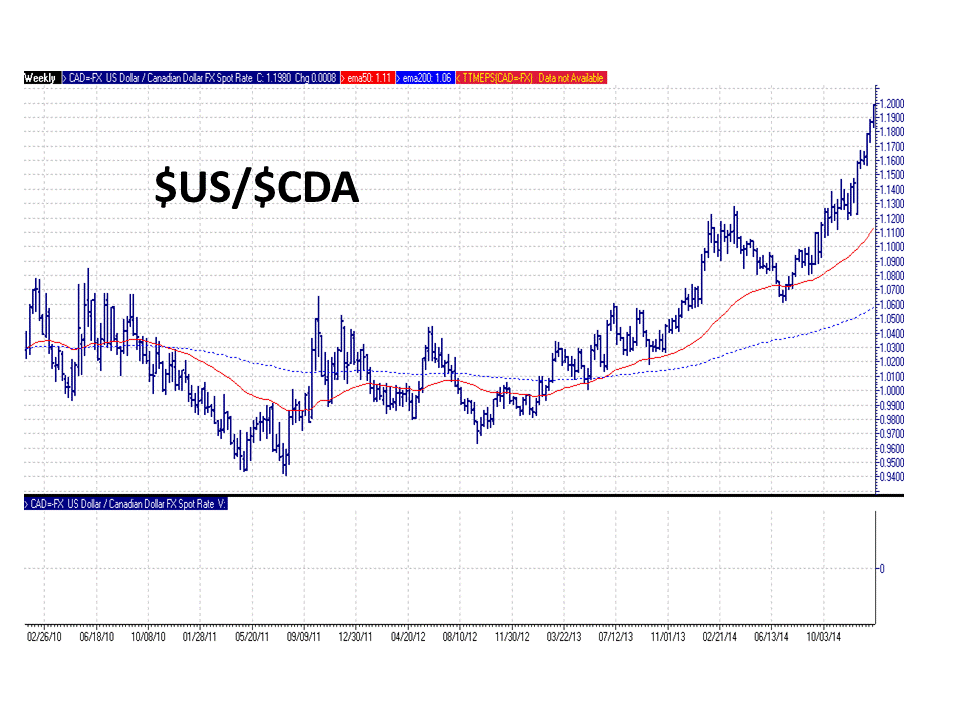What is driving Financial Markets?
1) Oil
The debate being waged in financial markets:
Is the lower price for oil good for the global economy? And what are the implications?
It is certainly good for some sectors: the consumer which is 70% of the US economy (and 63% of the Canadian economy) will certainly benefit from "savings at the pump".
Any industry that relies on transportation will certainly benefit from lower costs.
Not so good for the Energy Sector.
Perhaps not so good for financial companies with too heavy exposure to the financial sector.
2) Canada
There is an "international" sentiment among financial market participants that Canada is highly dependent upon Energy as a major driver of its economy. In the short-term, this is a negative for the $C.
However, the lower $C is a major driver in making Canadian exports more affordable, so in the longer term, this is in fact a positive for the Canadian economy.
For the moment, however, short-term traders/speculators will have the upper hand, until the dust starts to settle.
3) Volatility
Financial Markets do not like uncertainty. Uncertainty forces investors to move away from riskier assets (an emotional decision, not necessarily a wise, thought-out decision) and this will increase volatility.
It is important to keep perspective, however. Even with the Volatility Index (VIX) close to 20 and well above last years lows near 10, it is nowhere near 40 level reached in 2011.
As difficult as it is to get "spooked" by volatility, the smart investor will not be fooled by the "noise" and keep a longer-term outlook.
Central Banks do not like volatility as it puts pressure on the consumer and business owner's confidence and makes sustaining economic growth that much more difficult.
Be rest assured, interest rates (as determined by bond markets and central bankers) will not be going up when financial market volatility is high.
We must always keep our long-term perspective.




No comments:
Post a Comment